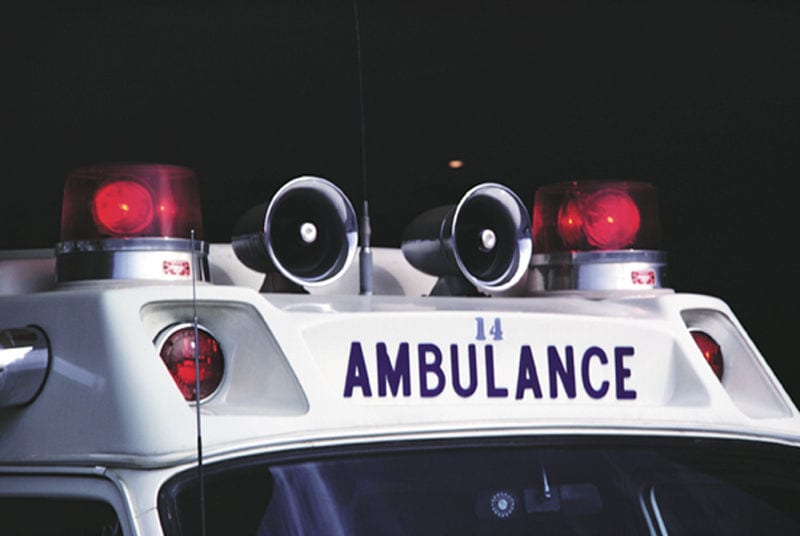Congress is trying to eliminate surprise medical bills, but the New York Times suggests lawmakers are too hesitant to take on the biggest transgressor: ambulance companies.
Congress is trying to cut back on surprise medical bills, but its latest round of proposals doesn’t include ambulance services.
The New York Times shares the experience of Karl Sporer.
When Sporer’s son was hit by a car in San Francisco, he was taken to the nearest hospital in an ambulance. Even though he had his own health insurance, Sporer received an $800 bill not long after. Apparently, emergency services didn’t think the insurance pay-out was sufficient—so they handed off the remaining balance to Sporer.
“I paid it quickly,” Sporer said. “They go to collections if you don’t.”
Although Sporer received and paid his surprise bill some 15 years ago, the practice hasn’t died out.

Sometimes patients get hit unexpectedly from other angles, too. They might end up in an emergency room their insurance doesn’t cover, or be treated by a physician not authorized by their plan. And in each case, Congress is trying to find a way to limit out-of-pocket responsibility for unsuspecting patients.
It’s all symptomatic of a greater healthcare crisis—one in which Americans are forced into medical arrangements based off their ability to pay, or their insurers’ particular coverage requirements.
Reigning in costs won’t fix the problem, even if it offers some relief. But none of Capitol Hill’s proposals cover the kind of exploitative ambulance billing described by the New York Times.
“Ambulances seem to be the worst example of surprise billing, given how often it occurs,” University of Missouri-Kansas City health economist Christopher Garmon told the Times. “If you call 911 for an ambulance, it’s basically a coin flip whether or not that ambulance will be in or out of network.”
Garmon’s research, notes the Times, has found that 51% of all ambulance rides taken across the country wind up being out of patients’ coverage networks. In contrast, the figure is a far-lower 19% of emergency room check-ins.
But it appears reigning in ambulance bills is more difficult than it may appear. Local policy-makers and legislators told the New York Times that they’ve considered their own measures—measures that can’t always compete with the brutal opposition lobbyists put up.
“It’s our experience that ambulance providers bill quicker and are more aggressive in sending bills to collection,” Anthony Wright, executive director of Health Access California, told the Times. “If they’re being more aggressive, you might want legislation to deal with that one first.”
However, Wright—who’s worked on California state legislation to restrict surprise billing—said his enthusiasm for including ambulances on one bill quickly waned.
“There is the political reality that it’s hard to go after an entire industry at once,” he said. “It’s hard to have a bill that’s oppose by doctors and hospitals and ambulances. We did manage to get a strong protection against doctor billing, but that was an epic, brutal, three-year long fight.”
Ambulance providers told the Times that cuts could kill their bottom-line, making it near-impossible to stay profitable.
In Bucks County, Pennsylvania, ambulance companies charge $1,500 for basic rides and $16 per mile. And they earn some 80% of their revenue by billing—the rest is subsidized by counties, taxes and fund-raising.
Chuck Pressler, executive director of Central Bucks Emergency Medical Services, said it’s not “fair” that a critically important industry needs to fund-raise.
“There is an expectation that we just plant money trees, that people should come in and work for free,” Pressler said. “When was the last time you saw a police officer send out a fund-raiser? They don’t have to do that. Why do we have to raise money to come get you when you’re sick?”
And indeed, Pressler’s quite right—there’s little reason the average American should have to consider the possibility of an unaffordable bill when their life may well be in danger. Unfortunately, that’s the reality of our health system—one so thoroughly politicized that people forget that, while medical care in the United States is very accessible compared to many other places, it’s considerably less affordable.
Sources
Ground ambulances left out of federal surprise-billing proposals
Politicians Tackle Surprise Bills, but Not the Biggest Source of Them: Ambulances


Join the conversation!